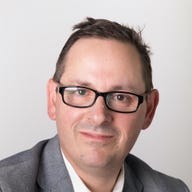ACCC says TPG consultant 'had no idea' in TPG-VHA merger case

Professor Stephen Gray, a consultant hired by TPG, faced the blowtorch of the Australian Competition and Consumer Commission's (ACCC) legal counsel, Michael Hodge, who sought to show Gray was not an expert in providing financial advice to TPG during its capital raise.
During questioning on Monday morning, Hodge pointed out that Gray lacked any real exposure when it came to serving on a board or being involved, at that level, in raising capital.
Gray's career has primarily been academic-based, receiving a Prime Minister's award for his teaching of economics as well as an extensive list of published research.
Hodge alleged that Gray's expertise was largely theoretical, based on empirical studies, and not real experience. His questions honed in on whether Gray's views were based on his expertise or common sense and if his opinions fell outside his "practical consulting expertise".
In response to Hodge's questions, Gray pointed out that the thought process behind his advice to TPG regarding their capital raise -- to pay for the AU$1.26 billion they spent on spectrum to support its now-abandoned plans to build a mobile network -- involved looking at previous capital raises undertaken by TPG. He also added TPG's financial performance had fallen under almost any financial measure.
Hodge, however, continued to hammer home on his point that the reports made by Gray to TPG were not from a position of experience. In question was the nature of the discounts that were applied for the capital raise with Macquarie which were brought up during questioning in the first week of the case.
Hodge eventually alleged that Gray was not being honest, saying that references Gray made to empirical, evidence-based studies regarding other similar capital raises were his opinion and not backed up by other studies.
Throughout the morning session, Hodge dissected Gray's submissions and poked holes in how the data within Gray's reports were obtained and how the professor reached his conclusions. As Gray tried to explain his answers, Justice Middleton, the presiding judge over the case, told Gray to answer questions directly rather than to justify his actions.
Gray said that based on the data he used, he had drawn conclusions on discounts that financiers would offer during the capital raising. However, Hodge was able to point out that several exceptions in the data were "unreliable", to which Gray said "Yes".
Despite this, Gray countered by saying that, "on average", his advice regarding discounts rates were typically lower on subsequent capital raising rounds -- which was the advice he provided to TPG.
Hodge then continued to allege that Gray's conclusions were unfounded due to the basis of the data used in the report being his opinions. Meanwhile, Gray maintained that his opinion remained valid for TPG.
In the lead-up to lunch, Hodge also asked Gray about the risks of a mobile network rollout, comparing two models: one from April 2017 and another from June 2018. The later model was more favourable, Gray said, although Hodge suggested that the term "optimistic" might be more valid.
Hodge looked at the details of Gray's calculations and questioned where he derived the values for the models. According to Gray, the models looked at the net present value (NPV) of the merged TPG-VHA business and the NPV for an independent TPG with different discount rates in his calculations.
"You really have no idea," said Hodge, before ending with the legal equivalent of a mic drop with: "No further questions".
After Gray was excused, Michael Neal, a witness for the ACCC was called to the stand. Neal was allegedly asked to assume the merger would not proceed even though TPG was able to raise around AU$400 million and had plans to build a new network.
In a game of courtroom tit-for-tat, Vodafone Hutchison Australia's counsel tried to discredit Neal's report to the court, poking holes in assumptions made by the expert by questioning where he sourced information and how he drew conclusions.
Neal testified, under examination, that he was asked to not seek out analyst reports in writing his own report. Neal regularly answered questions responding with "I'm not a telecommunications expert" although he has expertise in providing advice to underwriters looking to provide finance for large transactions.
When asked if he agreed with TPG CEO and Chairman David Teoh's view that the opportunity for building a new network had passed, Neal said he was unable to answer as he had read some of the press coverage and felt that might influence his response. However, he noted that it would be highly unlikely that the TPG board would endorse an action without the agreement of Teoh.
Before court was adjourned for the day, Neal was asked if the sale of the spectrum was considered. He responded with a similar refrain of "I'm not a telecommunications expert".
The case is expected to continue until 1 October 2019.
RELATED COVERAGE
- Ericsson asked about 'favourite children' in Vodafone/TPG blocked merger case
- TPG put key investor 'over a barrel'
- Teoh wanted his TPG kingdom to be a mobile operator 'no matter what': ACCC
- TPG profits halved from abandoning mobile network rollout after Huawei ban
- ACCC on TPG-Vodafone: Consumers need the benefits of vigorous competition
- TPG reiterates claim of needing Vodafone merger post-Huawei ban
- ACCC opposes TPG and Vodafone Australia merger